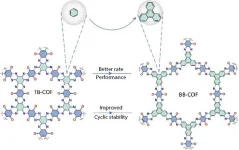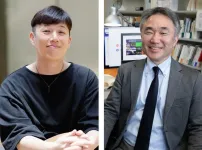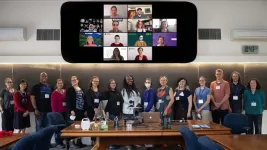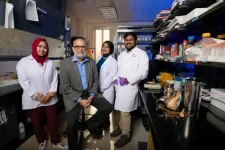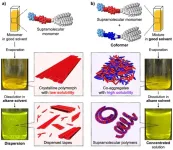A drug that boosts bone growth in children with the most common form of dwarfism, may also reduce their chances of sudden infant death syndrome, sleep apnoea and needing surgery, according to a new study.
The international research trial, led by Murdoch Children’s Research Institute (MCRI) and published in The Lancet Child & Adolescent Health, has showed for the first time that vosoritide treatment increases height, facial volume and the size of the foramen magnum, the hole at the base of the skull that connects the brain with the spinal cord, in children under five with achondroplasia.
MCRI is the largest vosoritide clinical trial site in the world and is led by Professor Ravi Savarirayan whose research team has previously shown how the drug improves bone growth development in patients, aged between 5-18 years, with achondroplasia. This latest study found the drug produces similar results in children and infants as young as four months.
Achondroplasia, a genetic bone disorder affecting one in every 25,000 children, is caused by a mutation in the FGFR3 gene. The condition slows bone growth in children's limbs and spine and narrows the base of the skull, putting pressure on the spinal cord. Patients under age five with achondroplasia are 50 times more likely to die due to complications of this narrowing, which causes spinal cord compression and breathing difficulties.
The randomised controlled trial, funded by Biomarin Pharmaceutical Inc, involved 75 children, aged under five years, from Australia, US, Japan and the UK, who underwent 52 weeks of vosoritide treatment.
The study found vosoritide lead to an increase in the foramen magnum, which was more pronounced in children aged six months and under.
Professor Savarirayan said these findings would not only vastly improve quality of life but could ultimately save lives.
“Children with achondroplasia have abnormalities at the base of their skull, which causes sleep disordered breathing and brainstem compression, all major contributors to sudden death in these young patients,” he said.
“These findings may lead to a decrease in sudden infant death syndrome, sleep apnoea and the necessity for neurosurgical decompression at the base of the skull.”
Professor Savarirayan said the trial reported no serious side effects and discovered changes in height and facial and sinus volume.
“The management of achondroplasia is evolving from purely treating the symptoms to identifying drugs that improve skeletal growth,” he said. Improved growth may also reduce the need for facial surgery and corrective orthodontic treatments, which are often required later in life.
The study found the annual growth rate was 0.78cm in treated children under five compared with 1.57cm in those five years and older who undertook previous clinical trials.
“The smaller height rise could be because in very young children with achondroplasia, there is rapidly declining growth, where a small difference in age can have a big impact on growth measurements,” Professor Savarirayan said. This height deficit accumulates rapidly up to the age of two and then follows a more gradual decline.”
Earlier this year, the Federal Government listed vosoritide, manufactured by BioMarin Pharmaceutical Inc, on the PBS for treatment of achondroplasia. Vosoritide, is the first and only approved medicine on the PBS that targets the underlying cause of the condition.
The eligible age to first access vosoritide therapy for achondroplasia varies between countries. The US recently dropped the age from five to birth, based on the results of this study. In Australia the drug is listed on the PBS from birth.
“The study findings will be crucial when relevant authorities are deciding whether to lower the age from which vosoritide can be taken with the first few months of life the time where we expect to see the greatest potential medical benefits,” Professor Savarirayan said. It will also be of considerable use to paediatricians and other healthcare specialists who are assessing the risks and benefits of starting vosoritide treatment in young children with achondroplasia.”
Daisy and Justin’s son Casper, 4, was diagnosed with achondroplasia as a newborn.
“During my pregnancy, it was suspected that Casper had the condition, which we had confirmed through genetic testing when he was 10 days old,” she said.
“I was filled with worry and anxiety when we received the diagnosis. As a first-time mum you are going through all the emotions of learning how to care for a baby and then having this unfamiliar condition to get your head as well was a lot to digest. It was a huge learning curve for us trying to understand what his future would look like.”
But to try and give Casper the best start to life, Daisy enrolled him in the vosoritide trial at MCRI when he was five months old.
Daisy said it was remarkable to see the positive changes in Casper.
“Casper has no spinal compression, his limbs are more proportionate and his legs are less bowed,” she said. He is healthy and happy and a lot of that we contribute to the vosoritide treatment.”
Daisy said the latest MCRI research came as a huge relief and would be life changing for families.
“We did a lot of research into the condition when Casper was born and there was some very sobering statistics,” she said. To learn children with achondroplasia are at risk of severe complications throughout their lives and are 50 times more likely to die before the age of five than other children was terrifying.
“But it’s reassuring to learn that vosoritide can help improve the quality of life of young children with achondroplasia and ultimately avoid some of the long-term health complications.”
Publication: Ravi Savarirayan, William R. Wilcox, Paul Harmatz, John Phillips, Lynda E. Polgreen, Louise Tofts, Keiichi Ozono, Paul Arundel, Melita Irving, Carlos A. Bacino, Donald Basel, Michael B. Bober, Joel Charrow, Hiroshi Mochizuki, Yumiko Kotani, Howard M. Saal, Clare Army, George Jeha, Yulan Qi, Lynn Han, Elena Fisheleva, Alice Huntsman-Labed and Jonathan Day. ‘Vosoritide therapy in infants and young children with achondroplasia: a multinational, phase 2, randomized, double-blind, placebo-controlled trial,’ The Lancet Child & Adolescent Health. DOI: 10.1016/S2352-4642(23)00265-1
Available for interview:
Professor Ravi Savarirayan, MCRI Group Leader, Molecular Therapies
Daisy whose son Casper, 4, has achondroplasia
END
